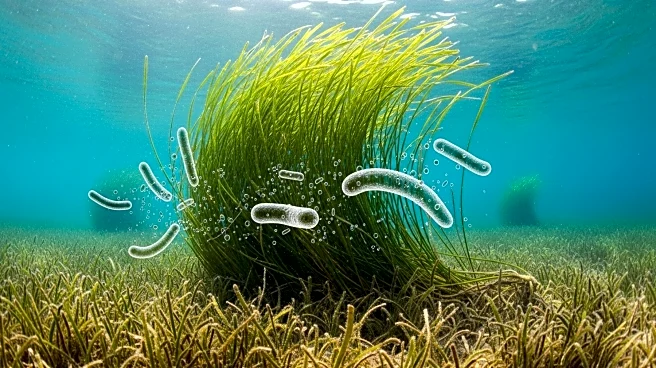What's Happening?
A study by the University of Liège has revealed that the transplantation method used to restore seagrass meadows significantly affects plant survival. The research, conducted at the STARESO marine research station, found that the root microbiome plays a crucial role in the health of Posidonia oceanica seagrass meadows. These ecosystems, vital for stabilizing seabeds and storing carbon, are under threat from human activities and climate change. The study tested various transplantation techniques, highlighting the importance of microbiome health in successful restoration efforts.
Why It's Important?
The findings underscore the critical role of microbiomes in the resilience and survival of seagrass ecosystems, which are essential for marine biodiversity and carbon storage. By understanding the microbiological dimensions of seagrass restoration, scientists can develop more effective and sustainable techniques. This research has implications for global efforts to combat climate change and protect marine environments, as healthy seagrass meadows contribute to carbon sequestration and habitat stability.
What's Next?
The study opens up new avenues for restoration strategies, such as inoculating beneficial bacteria or designing substrates that enhance root-sediment interaction. These approaches could improve the success rates of seagrass transplantation projects, contributing to the preservation of these critical ecosystems. Continued research and collaboration among scientists, conservationists, and policymakers will be essential to implement these findings on a larger scale.
Beyond the Headlines
The research highlights the interconnectedness of visible and invisible components of ecosystems. By focusing on the microbiome, restoration efforts can create more resilient and self-sustaining environments. This approach may also be applicable to other ecological restoration projects, emphasizing the importance of microbial health in ecosystem management.











